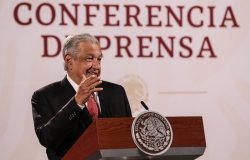Obama's Middle East Speech: Too Many Platitudes
In his speech on the Middle East today, President Obama offered lofty principles but little concrete action or admonitions to autocrats, says USIP-Wilson Center Distinguished Scholar Robin Wright. Read her full analysis of why the Arab world will likely be disappointed with the speech.
The Arab world is likely to be somewhat disappointed with President Obama's speech. On the issues that now consume their lives, he offered lofty principles but little that was substantively new in terms of concrete action or admonitions to autocrats.
The president also did not substantively close the gap in U.S. policy—what Washington is saying or doing—on protests over the same issues in Libya, Syria, and notably Bahrain. His comments on Bahrain particularly seemed out of touch with the tough reality on the ground. He did not move further on the future of Syrian President Assad. And the language on Iran echoed remarks by the last six administrations.
Most notably, President Obama never mentioned Saudi Arabia—or human rights abuses the State Department chronicles in its annual human rights report. He referenced American dependence on Middle East oil only in vague terms of guaranteeing the free flow of commerce from the region.
There were simply too many platitudes. Over the past two decades, the Arab world has listened to four presidents pledge support for reform and offer promises on political and economic change as well as peace efforts. Many in the region will probably welcome the language about reform—again—but be somewhat skeptical of how much the United States is really willing to do.










